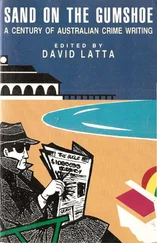I write. I feel the many possibilities that exist in every human situation, and I feel my capacity to choose among them. I feel the sweetness of liberty, which I thought I had lost. I take pleasure in the richness of a real, personal, intimate language. I remember the delights of breathing fully, properly, when I manage to escape the claustrophobia of slogans and clichés. I begin to breathe with both lungs.
I write, and I feel that the correct and accurate use of words acts like a medicine. It purifies the air I breathe, removes the pollutants, and frustrates the schemes of language defrauders and language rapists. I write and feel my sensitivity to language and my intimacy with its different layers, with its sensuality and humor, restore me to myself, to the person I was before my selfhood was expropriated by the conflict, by the governments and the armies, by the despair and the tragedy.
I write. I purge myself of one of the dubious but typical talents that arise in a state of war — the talent for being an enemy, nothing but an enemy. I write, and I try not to shield myself from the legitimacy and the suffering of my enemy, or from the tragedy and the complexity of his life, or from his mistakes and crimes, or from knowing what I myself am doing to him. Nor do I shelter myself from the surprising similarities I discover between him and me.
I write. And all at once I am no longer doomed to face this absolute, false, suffocating dichotomy — this inhuman choice between “victim” and “aggressor,” without any third, more human option. When I write, I can be a whole person, with natural passages between my various parts, and with some parts that feel close to the suffering and the just assertions of my enemies without giving up my own identity at all.
At times, in the course of writing, I can remember what we all felt in Israel for one rare moment, when Egyptian president Anwar Sadat’s plane landed in Tel Aviv after decades of war between the two nations. We suddenly discovered how heavy the burden was that we had been carrying all our lives — the burden of hostility and fear and suspicion. The burden of having to always be on guard, to always be an enemy, all the time. How blissful it was in that moment to do away with the massive armor of suspicion, hatred, and prejudice. How frighteningly blissful it was to stand naked, to stand pure, and watch as before our eyes a human face emerged from the narrow, one-dimensional depiction we had been seeing for years.
I write, and I give my most private and intimate names to an external, unknown world. In some sense, I make it mine. So do I return from a land of exile and alienation — I come home. I change, just slightly, what previously seemed unchangeable. Even when I describe the cruelest arbitrariness that determines my fate — whether man-made or preordained — I suddenly find in it new subtleties and nuances. I find that simply writing about the arbitrariness lets me move freely in its presence. That the very fact of standing up against the arbitrariness gives me freedom — perhaps the only freedom man has against any kind of arbitrariness — the freedom to articulate the tragedy of my situation in my own words. The freedom to articulate myself differently, freshly, against the unbending dictates of arbitrariness that threaten to bind me and pin me down.
I also write about what cannot be restored. About what has no comfort. Then too, in a way I still cannot explain, the circumstances of my life do not close in on me and leave me paralyzed. Many times a day, as I sit at my writing desk, I touch sorrow and loss like someone touching electricity with bare hands, yet it does not kill me. I do not understand how this miracle has come to pass. Perhaps after I finish this novel, I will try to understand. Not now. It is too soon.
I write the life of my country, Israel. A tortured country, drugged to the point of overdose by history, by emotions beyond what humans can contain, by an extreme excess of events and tragedy, by an excess of fear and a crippling sobriety, by an excess of memory, by dashed hopes, by a fate unique among nations. It is an existence that sometimes seems to take on the proportions of a mythic tale, diminishing our prospects of ever living an ordinary life as a state.
We authors know periods of despair and self-loathing. Our work, fundamentally, entails dismantling personalities and relinquishing some of our most effective defense mechanisms. Willingly we struggle with the hardest, ugliest, rawest, and most painful matters of the soul. Our work forces us, again and again, to acknowledge our helplessness as people and as artists.
Yet still — and this is the great miracle, the alchemy of our act — in some sense, from the moment we take pen in hand or put fingers to keyboard, we have already ceased to be a victim at the mercy of all that enslaved and restricted us before we began writing.
We write. How fortunate we are: The world does not close in on us. The world does not grow smaller.
The Arthur Miller Freedom to Write Lecture, New York, April 24, 2007
Individual Language and Mass Language
To open the International Literature Festival Berlin as an Israeli author is not only a great honor, but also a conjuncture that would have been unthinkable until not so many years ago, and even today I cannot be indifferent to its significance.
Despite the close relationship between Israel and Germany today — and between Israelis and Germans, between Jews and Germans — even now there is a place in one’s mind and in one’s heart where certain statements must be filtered through the prisms of time and memory to be refracted into the entire spectrum of colors and shades. As I stand here before you in Berlin, I cannot help but begin with the thoughts that are constantly refracted within me, in that prism of time and memory.
I was born and raised in Jerusalem, in a neighborhood and in a family in which people could not even utter the word “Germany.” They found it difficult to say “Holocaust” too, and spoke only of “what happened over there. ”
It is interesting to note that in Hebrew, Yiddish, and every other language they speak, when Jewish people refer to the Holocaust, they tend to talk about “what happened over there ,” whereas non-Jews usually speak in terms of “what happened then .” There is a vast difference between “there” and “then.” “Then” means in the past tense; “then” enfolds within it something that happened and ended, and is no longer. While “there,” conversely, suggests that somewhere out there, in the distance, the thing that happened is still occurring, constantly growing stronger alongside our daily lives, and that it may re-erupt. It is not decisively over. Certainly not for us, the Jews.
As a child, I often heard the term “the Nazi beast,” and when I asked the adults who this beast was, they refused to tell me, and said there were things a child should not know. Years later, I wrote in See Under: Love about Momik, the son of Holocaust survivors who never tell him what really happened to them “Over There.” The frightened Momik imagines the Nazi beast as a monster that controlled a land called “Over There,” where it tortured the people Momik loves and did things to them that hurt them forever and denied them the ability to live a full life.
When I was four or five, I heard for the first time of Simon Wiesenthal, the Nazi-hunter. I felt a great sense of relief: Finally, I thought, there is someone courageous enough to fight the beast, even willing to hunt it down! Had I known how to write at the time, I might have written Wiesenthal a letter full of the detailed and practical questions that were preoccupying me, because I imagined that this hunter probably knew everything about his prey.
Читать дальше












